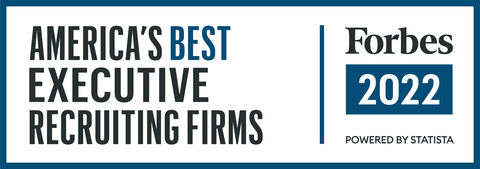Talent will get you in the door, but
character will keep you in the room.
An Unexpected Benefit of COVID-19: The Formation of Life-Long Career Skills

The past months of pandemic-induced disruption to decades-long work processes have allowed large segments of the white-collar workforce to learn valuable new skills from the WFH experience. The University of Southern California Annenberg School for Communication and Journalism’s Center for Third Space Thinking suggests that remote employees were thrust into a crisis management experiment, that when successfully navigated, sharpened existing skills and added entirely new skills to an employee’s resume.
On the East Coast, in a more irreverent take on the same topic, Boston Magazine’s Marc Ackerman came to a similar conclusion on the value of newly enhanced or acquired skills, focusing on the ability of Gen Exer’s in particular to cope with hunkering down at home.
“The world of work in the post-coronavirus era will benefit from new skills and a new confidence among the tens of thousands of executive, technical, managerial and professional employees who have not only coped with the WFH experience but have learned and integrated new productive behaviors,” says Nancy Halverson, SVP Global Operations at MRINetwork. “The workplace will be a better place with a stronger base of resilient performers.”
As an operations leader in a network of almost 350 executive recruitment offices charged with improving the talent landscape of companies and careers all over the world, Halverson offers this distillation of skills cited by both USC and Boston Magazine along with her in-the-market observations:
- Resiliency and adaptability. The workforce was plunged in to an immediate WFH sink-or-swim environment. Successful adopters were able to reevaluate priorities, sharpen focus on meeting deadlines and quickly learn how to integrate new technologies, like Zoom, WebEx, and Google Hangouts, to not only maintain communications but to improve meeting outcomes. Each day presented the need to address business challenges requiring looking at technology, management styles and team behaviors through a new lens.
- Collaboration and empathy. WFH disruptions impacted individual team members in different ways based on unique at-home circumstances. Observant managers extended support and understanding to coworkers and subordinates who were not performing at optimal levels. That called for smart on-the-fly decisions and appropriate accommodations without sacrificing organizational goals. Building team collaboration is a challenging task in normal environments. Enhancing collaboration in a remote environment is a resume-worthy accomplishment.
- Cultural Competency. Many organizations needed to immediately address rapidly changing market conditions. Business meetings, sales calls, product innovation, in fact virtually every function, required restructuring, shifting employees into new team environments with new process, establishing new goals, and metrics. As noted by the USC study, successful WFH adapters honed the ability to first observe different individual work styles and respond by devising, then implementing approaches that encouraged inclusivity, collaboration producing targeted results.
“As firms transition back to a more normal work environment over the next several months, be sure to look back and evaluate critical lessons and successful outcomes that you delivered as a manger,” noted Halverson. “Don’t waste the valuable skills you sharpened and new skills that you acquired and apply them throughout your career.”



